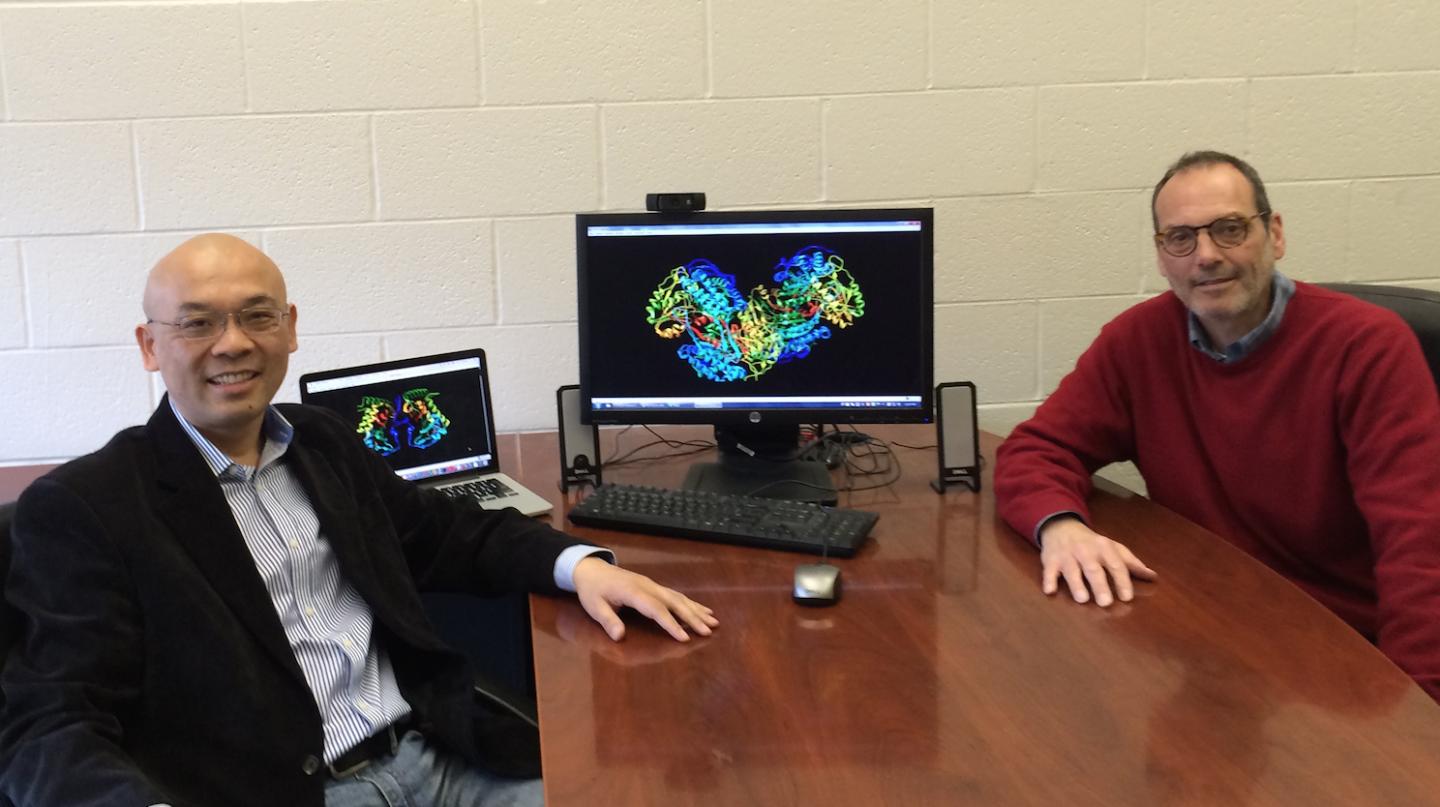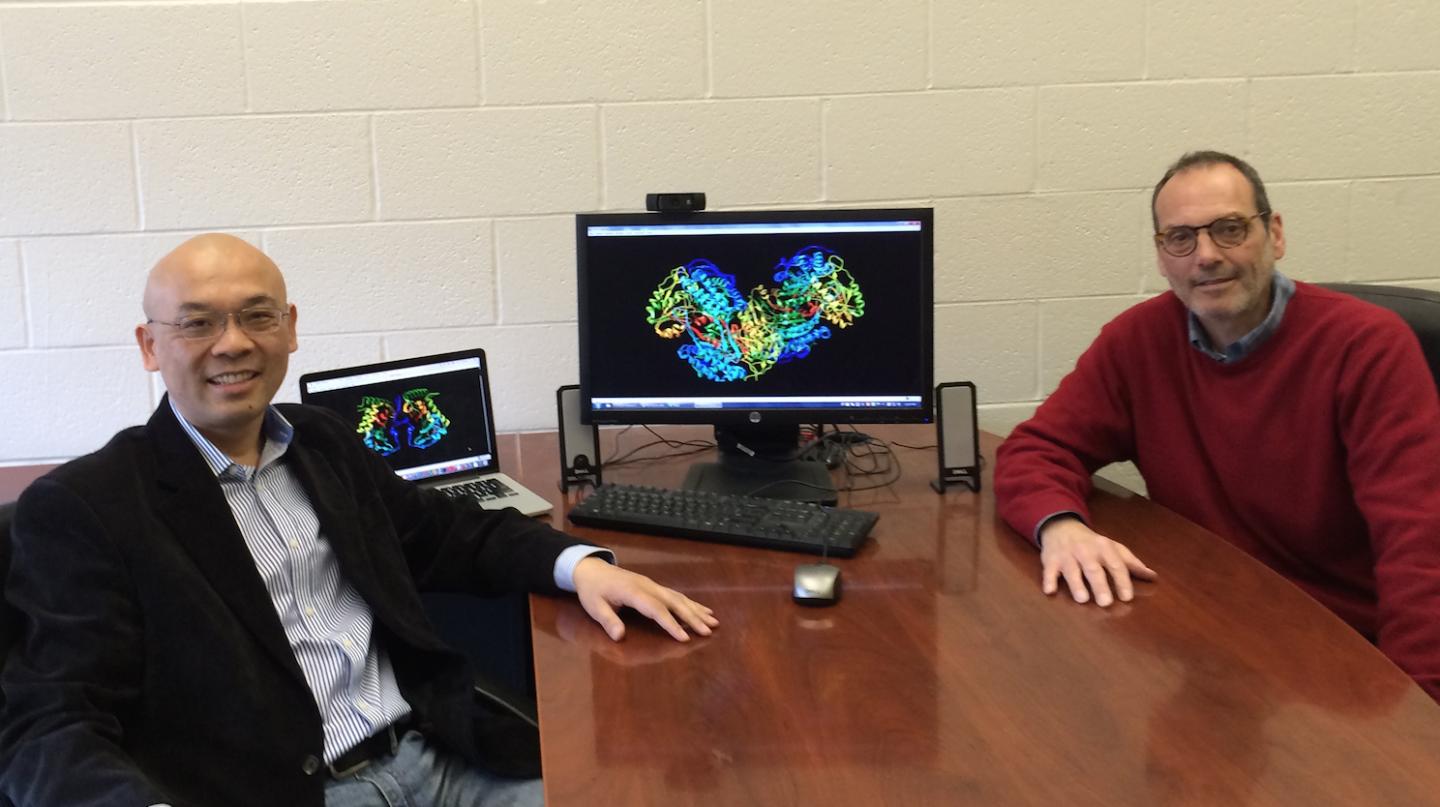
Credit: Photo courtesy of Jianlin Cheng.
Jianlin Cheng has been in the business of protein structure prediction since before coming to the University of Missouri College of Engineering in 2007. And thanks to new funding from the National Institutes of Health, he's looking at ways to take his research even further.
Cheng, an associate professor of computer science, and his co-PI — John Tanner, professor of biochemistry at MU — recently received a four-year, $1.3 million grant from NIH (project number 2R01GM093123-05A1) to continue their research on integrated prediction and validation of protein structures.
Protein structure prediction is important, particularly in the medical community. The scientific community has sequenced millions of proteins to date but only has been able to experimentally define the structure of less than 0.1 percent of those proteins. Knowing the structure is vitally important because the 3D structure of a protein defines its function, and greater, more accurate knowledge of these structures could help with breakthroughs in several areas, including drug discovery, protein engineering, new protein design, disease detection, precision medicine and more.
Currently, Cheng and Tanner are working with the enzyme superfamily aldehyde dehydrogenase (ALDH), which is involved in a wide array of biological processes. Its mutations can cause potentially serious problems, and it may be a marker indicating a higher cancer risk.
"If a mutation happens to that enzyme, it can cause many diseases," Cheng said. "So we're trying to use our tool to accurately predict how one mutation, the change of one amino acid, may change the conformation of proteins in that family. That can help explain many metabolic disorders.
"(ALDH was chosen) because of its medical significance and because Dr. Tanner has been working with it for many years. He has techniques to study every possible mutation."
Cheng developed a program, called MULTICOM, which he uses to computationally predict the 3D structure of protein sequences. After Cheng predicts a structure, Tanner puts together the same protein sequence in his lab and runs tests to check the accuracy of Cheng's predictions.
On average, Cheng's prediction software can predict good structures for about 60-70% proteins. The goal of this new funding is to take what's called deep learning — which uses several layers of processing to model complex structures — and apply it to protein structure prediction in order to increase the accuracy.
If that breakthrough is reached, it could help open the door for advances in almost any area that deals with protein structures — including medicine, plant sciences, veterinary medicine, personalized healthcare and more. In particular, the accurate prediction of the effects of a genetic mutation on protein structure could help clinicians develop personalized treatments for patients.
"It's the first time anyone's proposed this technique to address this problem," Cheng stated. "The idea is in other fields, people use this deep learning technique, and it's one of the most efficient techniques for cognition problems like recognizing facial images or speech recognition. We're trying to develop this kind of technique to address how the protein automatically goes from the sequence to folding into a 3D structure."
###
Media Contact
Ryan Owens
[email protected]
573-882-1617
@mizzounews
http://www.missouri.edu





